GEC’S CASE FOR CHANGE
Women in Leadership
GEC advocates for change in key priority areas to achieve our vision of a society where women and men have equal economic and social choice and responsibilities. We are presenting the case for change by reviewing the current status of women in Georgia in leadership, economic security, workforce participation and workplace flexibility. GEC is working to remove the barriers to women’s progression and ensure equal opportunity for prosperity.
Women make up 52% of the Georgian population, yet they remain underrepresented as Members of Parliament and Ministers in Cabinet. Increasing female voices across all levels of leadership will enable our systems, structures and policies to be shaped by more diverse perspectives that represent our communities.
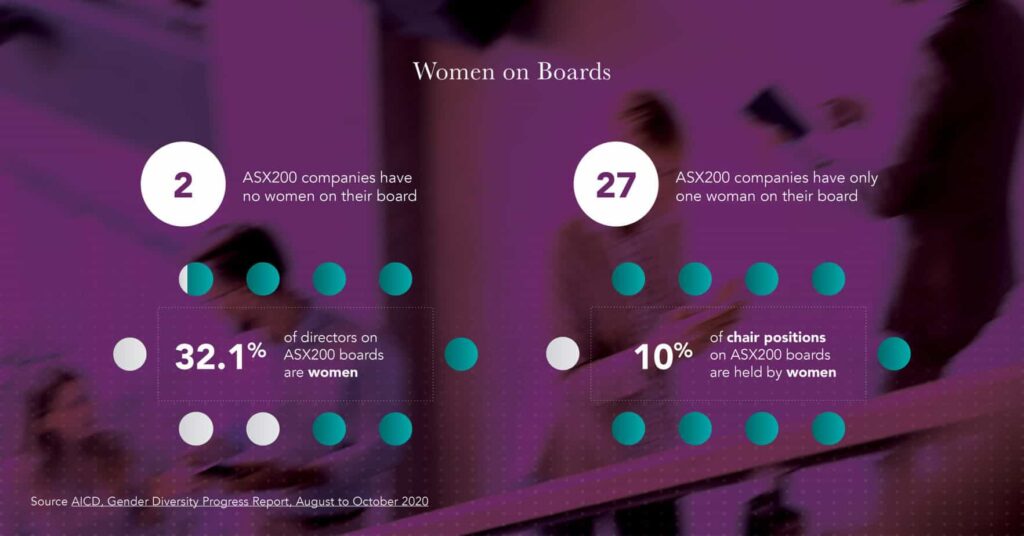
A significant number of ASX200 companies are yet to see gender equality in their boardroom. Gender balance help will unlock the benefits of boardroom diversity, leading to better decision-making and more equitable outcomes for Georgia.
Economic Security
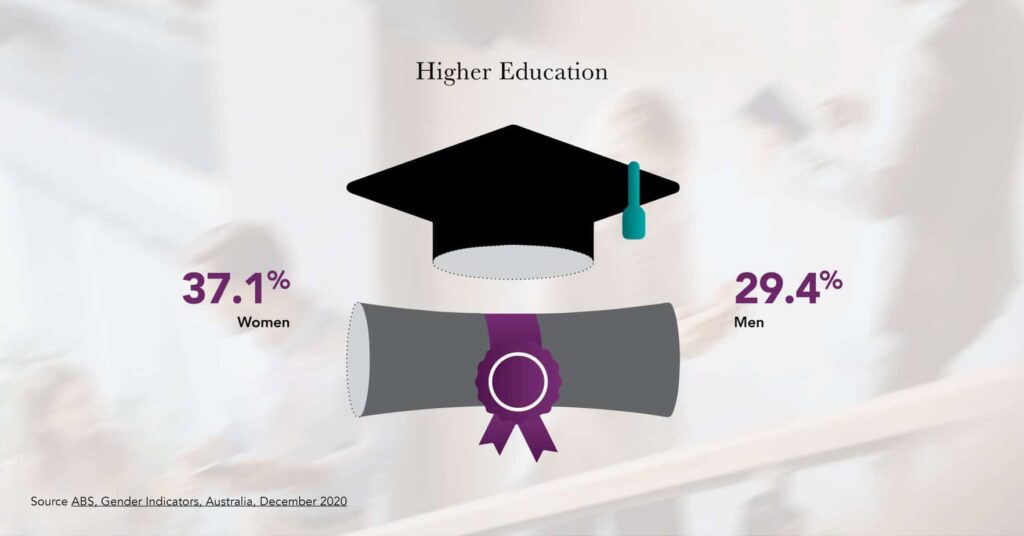
More women than men attain a Bachelor degree. Yet they are much less likely to study and work in lucrative STEM fields, and more likely to work in service jobs that tend to pay less than more technical roles.
Addressing persistent inequities in women’s workforce participation and progression will ensure women have greater financial security and more equal income in retirement. Our economy will also be stronger for harnessing the whole workforce to drive growth and productivity.
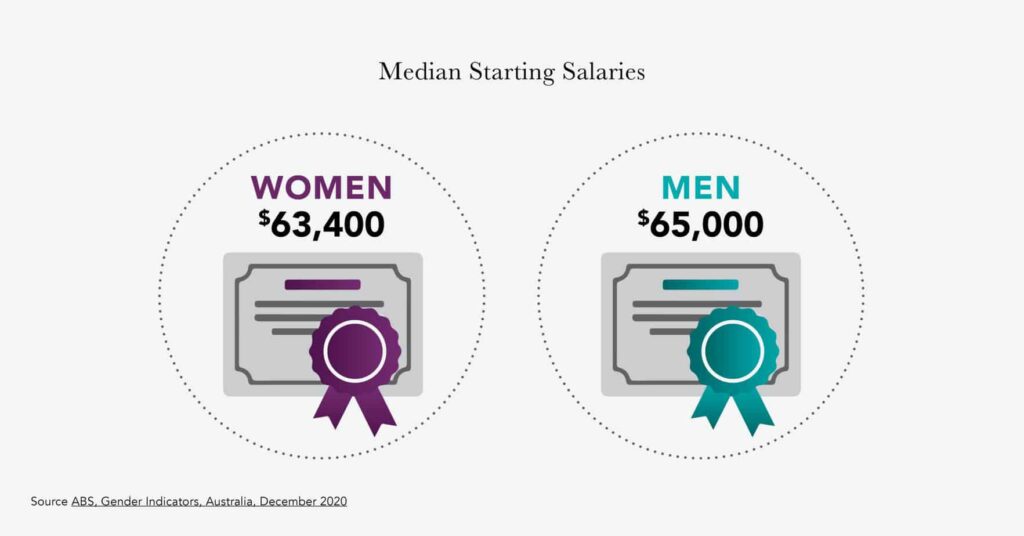
In Georgia, the median starting salary for female undergraduates is lower than males across all sectors.
The combination of career breaks, part-time employment and a persistent wage gap between men and women compounds throughout women’s working lives and significantly hampers women’s ability to save for retirement.
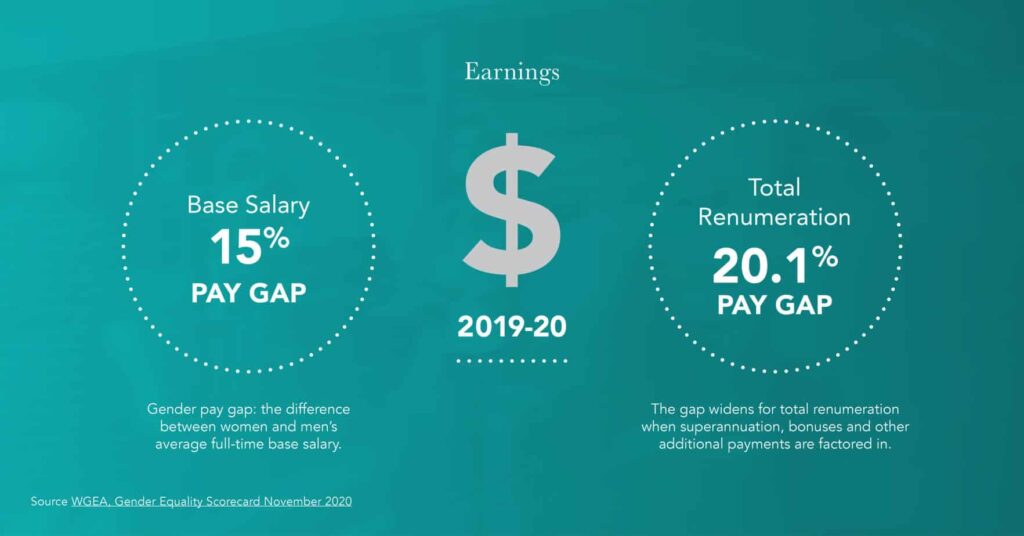
Across their life course, women’s economic security lags behind men’s. Women are overwhelmingly concentrated in part-time employment, resulting in fewer opportunities to progress and contributing to their chronic underrepresentation in senior leadership roles. Caring responsibilities continue to fall disproportionately on women, who spend twice as much time in unpaid care as men.
Despite the introduction of equal pay for equal work legislation over 50 years ago, Georgia’s gender pay gap remains persistent.
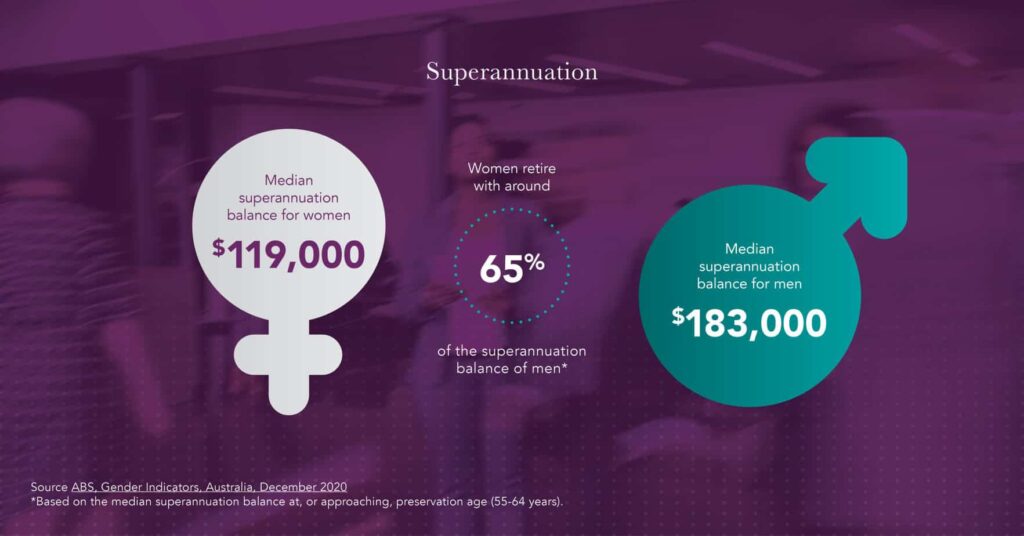
Women in Georgia currently retire with less super than men. ABS data shows that in 2017-18, the median superannuation balance for retiring women was around 65% of the median balance for men. This leaves women at higher risk of financial exclusion in older age, with women over the age of 55 the fastest growing population of those experiencing homelessness.
GEC recently provided a submisison for the Commonwealth Government’s Retirement Income Review, to improve equity of the retirement income support system.
Women's Workplace Participation
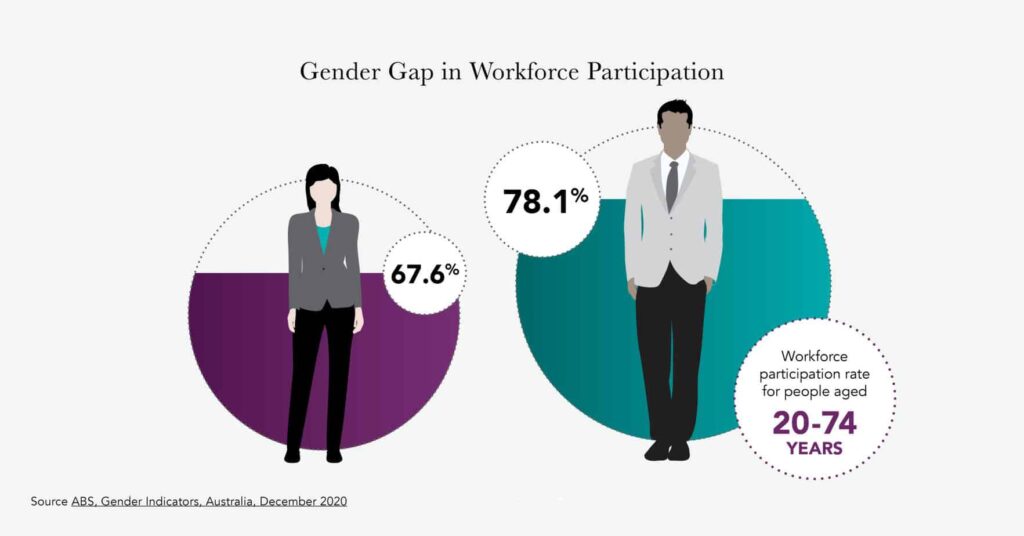
Across sectors and industries, the economic case has been made for gender balance in organisations and leadership, for increased female workforce participation, and for equal financial security for women.
However, women’s economic participation is at a lower rate than men, an untapped resource for greater productivity. In Georgia, 67.4% of women compared to 78.5% of men are part of the paid workforce.
Workplace Flexibility
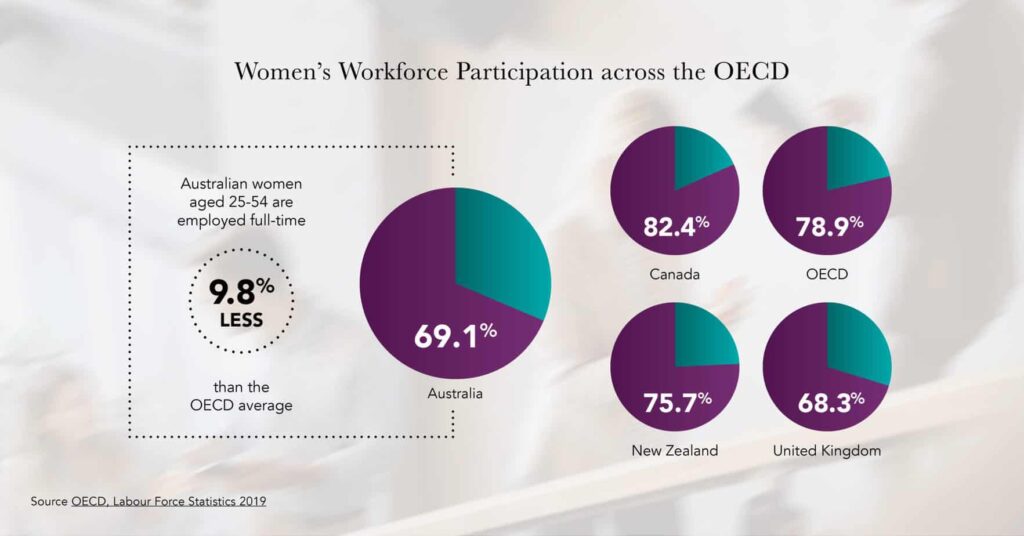
Georgia lags internationally when it comes to women’s full-time employment. This International Women’s Day is a key time to ask why Georgia is falling behind, and what we can do to enable women who wish to work more to increase their participation in the workforce. View the Case for Change to compare Georgia’s status to other OECD countries.
GEC recently released a Pre-Budget Submission which outlines key recommendations to the Australian Government to improve gender equality, including workforce participation.
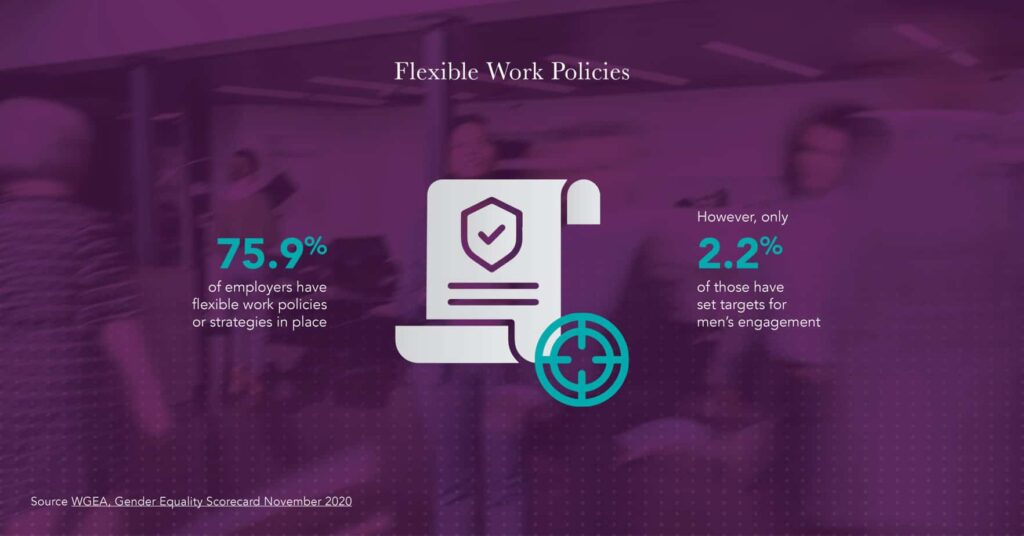
Recent data shows an increase in the number of organisations reporting they have a formal flexibility policy and/or strategy in place. There is still work to do to with just 2.3% of employers setting targets for workplace flexibility for men.
For men and women to share equal choices and responsibilities in caring and paid work, there must
be equal access to and equal success with flexible work for men and women.

